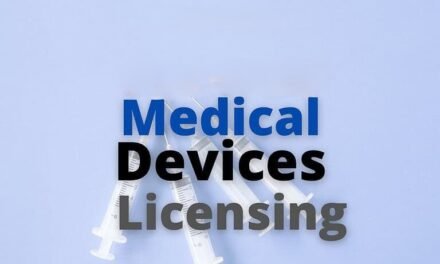
What are the latest advancements in medical device technology?

The medical device industry is witnessing remarkable advancements driven by technological innovation, artificial intelligence, miniaturization, and connectivity. These innovations are transforming diagnostics, treatment, and patient care across healthcare systems. Here are the latest advancements in medical device technology:
1. Artificial Intelligence and Machine Learning (AI/ML):
- AI Diagnostics: AI-powered devices analyze medical images (e.g., X-rays, CT scans) with precision, aiding in early detection of conditions like cancer, stroke, and heart disease.
- Predictive Analytics: Machine learning algorithms predict patient outcomes, optimizing treatment plans and resource allocation.
- Adaptive Devices: Smart prosthetics and implants use AI to adapt to user movements and improve functionality.
2. Wearable and Implantable Devices:
- Health Monitoring: Devices like smartwatches and fitness bands monitor vital signs (e.g., heart rate, oxygen levels, ECG) in real-time, empowering preventive care.
- Continuous Glucose Monitors (CGMs): Implantable sensors provide accurate, continuous monitoring for diabetes management.
- Cardiac Monitoring Implants: Miniaturized implantable devices detect and treat arrhythmias or heart failure through real-time monitoring.
3. Robotics in Surgery:
- Robotic-Assisted Surgery: Systems like the da Vinci Surgical System enable precision in minimally invasive procedures, reducing recovery times and complications.
- Microsurgical Robots: Innovations in robotics allow for delicate procedures, such as retinal or neurosurgery.
- AI-Guided Robots: Robots equipped with AI provide real-time feedback and support to surgeons during operations.
4. 3D Printing and Bioprinting:
- Custom Implants and Prosthetics: 3D printing enables personalized orthopedic implants, dental devices, and prosthetics tailored to individual patients.
- Bioprinting: Emerging technologies are creating tissues and organ structures for research and potential transplants.
- Surgical Models: 3D-printed anatomical models help surgeons plan complex procedures.
5. Smart and Connected Devices (Internet of Medical Things, IoMT):
- Connected Ecosystems: IoMT devices, such as smart infusion pumps and connected inhalers, allow seamless data sharing with healthcare systems.
- Remote Patient Monitoring: Devices like smart blood pressure cuffs and pulse oximeters enable real-time monitoring of chronic conditions from home.
- Secure Data Transmission: Advances in cybersecurity protect patient data in connected devices.
6. Digital Therapeutics and Virtual Reality (VR):
- Digital Health Apps: Devices integrated with digital therapeutics deliver evidence-based interventions for managing mental health, diabetes, and chronic pain.
- VR in Rehabilitation: Virtual reality tools enhance physical therapy, cognitive rehabilitation, and pain management by providing immersive experiences.
7. Advanced Diagnostic Devices:
- Point-of-Care Diagnostics: Portable diagnostic tools provide rapid results for blood tests, infectious diseases, and biomarkers at the bedside or in remote settings.
- Liquid Biopsy Devices: Non-invasive diagnostic tools detect cancer and other diseases through biomarkers in blood samples.
- Multiplexed Testing: Devices capable of testing multiple pathogens or conditions simultaneously improve efficiency in labs.
8. Miniaturization and Nanotechnology:
- Microelectromechanical Systems (MEMS): Tiny sensors are embedded in devices for real-time health tracking and diagnostics.
- Nanorobotics: Nanobots deliver targeted drug therapies or perform micro-surgeries within the body.
- Lab-on-a-Chip: Miniaturized labs perform complex diagnostic tests on a small chip, accelerating results.
9. Advanced Imaging Technologies:
- Hybrid Imaging Systems: Combining modalities like PET-CT and SPECT-MRI improves diagnostic accuracy and disease staging.
- Portable Imaging Devices: Handheld ultrasound and compact MRI machines enhance access to imaging in remote or emergency settings.
- AI-Enhanced Imaging: Algorithms improve image clarity, automate analysis, and assist in anomaly detection.
10. Personalized and Precision Medicine:
- Genomic Devices: Tools for rapid DNA sequencing enable personalized treatment plans based on genetic profiles.
- Precision Drug Delivery Systems: Smart inhalers, infusion pumps, and wearable patches deliver drugs with tailored dosing based on patient data.
- Biosensors: Advanced sensors detect biomarkers for disease monitoring and personalized care.
11. Advanced Therapeutic Devices:
- Focused Ultrasound Therapy: Non-invasive treatment for conditions like Parkinson’s disease, uterine fibroids, and certain cancers.
- Electrical Stimulation: Devices for neuromodulation manage chronic pain, depression, and epilepsy.
- Proton Therapy Systems: Highly precise radiation therapy minimizes damage to healthy tissue during cancer treatments.
12. Augmented Reality (AR) in Training and Surgery:
- Surgical Navigation: AR overlays real-time images and data onto the surgical field, improving accuracy and safety.
- Medical Training: AR tools provide immersive, hands-on training for medical students and professionals.
13. Advances in Biomaterials:
- Bioactive Materials: Biomaterials that promote tissue regeneration and healing, such as bioresorbable stents.
- Smart Materials: Materials that respond to environmental changes (e.g., temperature or pH) to improve device functionality.
14. Cybersecurity in Medical Devices:
- Enhanced measures: to protect connected devices from hacking and ensure patient data integrity.
- Integration: of robust encryption protocols and real-time threat detection systems.
15. Sustainable and Eco-Friendly Devices:
- Development: of recyclable or biodegradable medical devices to reduce environmental impact.
- Innovations: in single-use plastics and energy-efficient device designs.
Advancements in medical device technology are driving a revolution in healthcare, making it more precise, accessible, and patient-centered. These innovations are not only improving outcomes but also enabling personalized and preventive care. The integration of AI, IoMT, nanotechnology, and bioprinting holds immense potential for the future of healthcare systems globally.




























